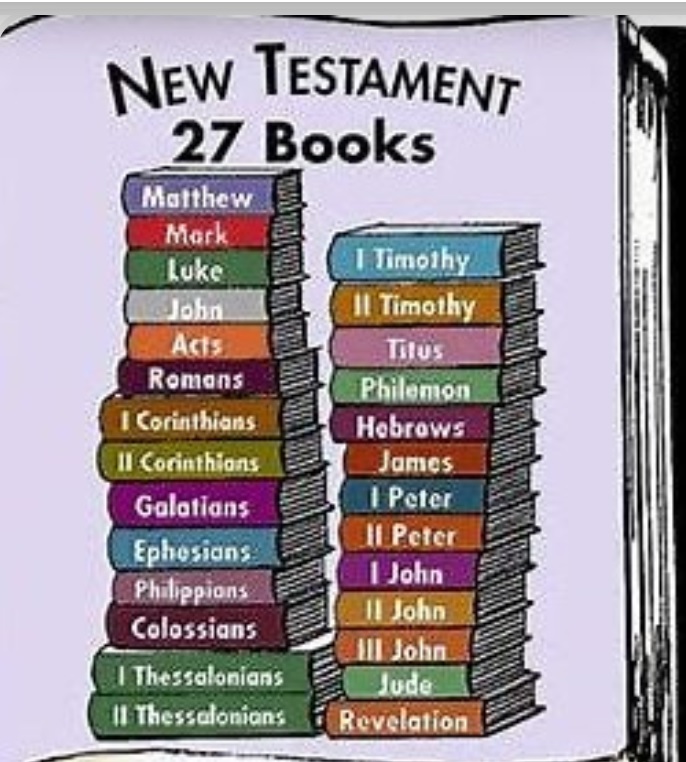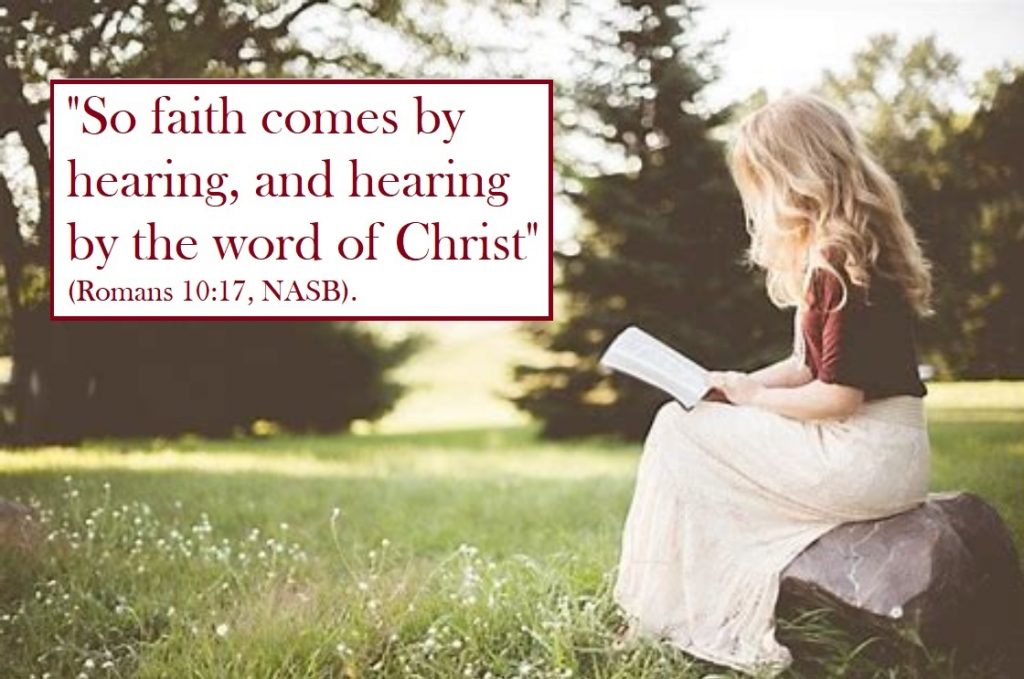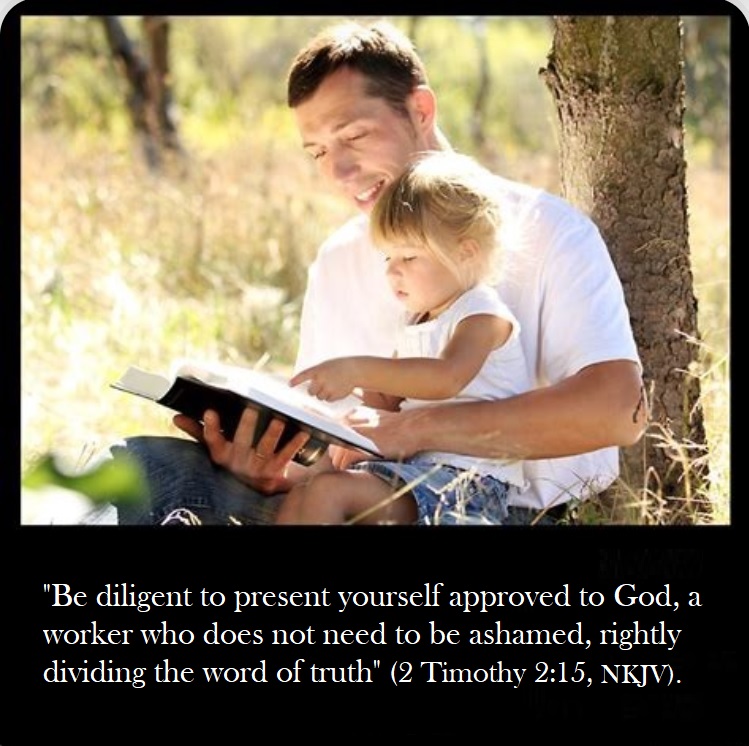“Go therefore and make disciples of all the nations…teaching them to observe all that I commanded you; and lo, I am with you always, even to the end of the age” (Matthew 28:19-20, NASB).
——————–
Contents:
1) Be Sure You Finish (Bill Crews)
2) A Tale of Two Rich Men (Frank Himmel)
3) Things That Promote Peace (Greg Gwin)
4) News & Notes
——————–

-1-
Be Sure You Finish
Bill Crews
It is not enough to become a Christian; one must then be a Christian — to the very end. It is not enough to enter into Christ; one must abide in Christ, yes, and even die in Christ (Revelation 14:13).
Who knows how many (I have encountered or learned of several in every city where I have lived) have become Christians, have been saved from their past sins, have entered the Lord’s church, and then fallen away? Most of them fall away soon after being saved (see Matthew 13:20-21), but some of them endure almost all of the way and then fall away.
God knew this would occur; therefore, He warns against it (Hebrews 3:1, 12; 4:1; Matthew 25:13; I Corinthians 10:12), describes those who have become guilty of it (2 Peter 2:20-22; Hebrews 6:4-6; Revelation 3:15-17), tells how to prevent it (2 Peter 1:5-7; 3:17; James 5:12; Revelation 3:5, 11), and supplies the remedy for it (Acts 8:13-24; Revelation 2:4-5; 3:18-19). Each one of these proves that a child of God can fall away. Of course, it need not happen at all — a Christian can fall, but no Christian has to fall.
No greater tragedy, and none fraught with more serious consequences, can be named than for a Christian to forsake the right way (2 Peter 2:15), become entangled again in the defilements of the world (2 Peter 2:20-22), make shipwreck concerning the faith (1 Timothy 1:19), become an enemy of the cross of Christ (Philippians 3:18-19), crucify afresh the Son of God and put Him to an open shame (Hebrews 6:6), and tum aside after Satan (1 Timothy 5:15).
We are told to endure unto the end, and on this basis we are promised eternal salvation (Matthew 10:22). We are called upon to not be weary in well-doing and are promised that we shall reap if we faint not (Galatians 6:9). We are to be faithful, even if such should cost us our very lives, but we are promised “the crown of life” (Revelation 2:10). One lesson we are taught in the parable of the sower is this: It is not enough to hear the word of God and receive it ( even with joy); we must also hold it fast and bring forth fruit with patience (steadfastness) (Luke 8:11-15).
In becoming Christians, we have enlisted in the army of Christ — we need to fight the good fight of the faith, to war the good warfare unto the end (1 Timothy 6:12; 1:18). We have begun a voyage or started on a journey — we need to pursue it to its final destination (1 Peter 1:17; 2:11; Hebrews 11:10, 13-16; 13:14). We have entered a race — we need to run it with patience (endurance), to press on toward the goal (Hebrews 12:1; Philippians 3:13-14; 1 Corinthians 9:24-25).
If we have become children of God, let us be certain that when the curtain of death brings to an end the final act in our drama of this life, we can say with Paul, “I have fought the good fight, I have finished the course, I have kept the faith; henceforth there is laid up for me the crown of righteousness, which the Lord, the righteous judge, shall give to me at that day; and not to me only, but also to all them that have loved His appearing” (2 Timothy 4:7-8).
— Via Roanridge Reader, Volume 35, Issue 32, Page 2, August 9, 2020
——————–

-2-
A Tale of Two Rich Men
Frank Himmel
Luke presents an interesting contrast of two rich men who came to Jesus.
In Luke 18, a rich ruler came asking what he needed to do to inherit eternal life. Luke does not say what kind of ruler he was. Elsewhere he uses this same word to refer to a ruler of a synagogue (8:41), a judge (12:58), and members of the Sanhedrin, the Jewish high court (23:13, 35).
Some rulers are self-serving tyrants. Not this man. He assured Jesus that he kept God’s commandments, including those that prohibited lying and stealing. This was a man in an influential position who lived honorably. Doubtless he was well respected.
In Luke 19, a rich tax collector named Zaccheus came to Jesus. The crowds viewed him quite differently. When Jesus invited himself to Zaccheus’s house, “they all began to grumble, saying, ‘He has gone to be the guest of a man who is a sinner’” (v. 7).
These two interviews with Jesus ended quite differently. The ruler refused to do what Jesus required of him: sell what you have, distribute it to the poor, and come follow Me (18:22). He left “very sad.” Zaccheus, on the other hand, committed to giving half of what he had to the poor and paying back four times as much to anyone he may have defrauded (19:8). He received Jesus “gladly.”
Jesus said of Zaccheus, “Today salvation has come to this house, because he, too, is a son of Abraham. For the Son of Man has come to seek and to save that which was lost” (19:9-10). With regard to the ruler, the Lord could only caution, “How hard it is for those who are wealthy to enter the kingdom of God!” (18:24).
In the end, the man whom society respected was lost and the man whom society rejected was saved. God said centuries earlier, “For God sees not as man sees, for man looks at the outward appearance, but the Lord looks at the heart” (1 Samuel 16:7b).
The point of this contrast is that our hearts, not our circumstances, determine our response to Jesus, and that determines our salvation. Jesus’ caution, of course, must be heeded. Wealth does indeed tend to fill our hearts and lead them away from God. That being the case, it is another illustration of something that society often wrongly values.
What is your response to Jesus?
— Via Pathlights, July 19, 2020
——————–

-3-
Things That Promote Peace
Greg Gwin
In Romans 14:19, we are instructed to ”pursue the things which make for peace” (NASV). Ephesians 4:3 teaches that we should be “endeavouring to keep the unity of the Spirit in the bond of peace.” What are some of the things that are necessary so that we can obey these commands and enjoy peace among brethren?
The Scriptures teach us that all of these things are important for peace:
1) Humility. Pride is a great hindrance to peace. It provides an “explosive atmosphere” for strife and turmoil. Those who are proud can be easily provoked into a fight. God’s Word urges us to “be subject one to another, and be clothed with humility” (1 Pet. 5:5).
2) Love. Instead of following the many instructions concerning love (1 Jn. 4:20,21; Jn. 13:34,35) we are often too ready to engage in harsh, presumptuous judging. This, of course, is plainly condemned by God (Matt. 7:3-5).
3) Carefully chosen words. We are warned that our words have the power to “stir up anger” (Prov. 15:1). For this reason, “let your speech be always with grace, seasoned with salt, that ye may know how to answer every man” (Col. 4:6).
4) Putting others first. We live in a selfish, self-centered society. This selfishness is a root cause of much fighting and bitterness. To combat this we must “look not every man on his own things, but every man also on the things of others” (Phil. 2:4).
5) Forgiveness. It is inevitable that problems will arise; wrongs and offenses will occur. When this happens we have to be ready to “forgive one another, even as God for Christ’s sake hath forgiven you” (Eph. 4:32).
6) Truth. There can be no real peace if we are not firmly established together in God’s truth (2 Jn. 9-11). When we speak the truth we demonstrate our love (Eph. 4:15) for both God and our fellow man.
— Via The Beacon, September 20, 2020
——————–
-4-
News & Notes
Folks to be praying for:
Ronnie Davis will be given shots Wednesday (October 1) for his many back problems that he is having much trouble with. He and Melotine have been doing “virtual church” while not able to be with us.
Deborah Medlock will begin a 1-week trial with the radiation machine this Wednesday. For 4 weeks, she will be receiving 5 treatments a week and booster treatments during the 4th week. All is looking good. Since her arm can be painful in certain positions, she is now having to work on that to prepare for the 20-to-30-minute treatments.
Anita Young mentioned recently that her father Rex Hadley is over the covid-19, but now “has a pleural effusion around part of his lung…fluid buildup.” Anita has been taking care of her elderly parents while they are both in poor health. They have also been doing church services electronically.
Others to also be praying for: the family and friends of Shirley Griffin Crews who passed away recently, Max Beach, Elaine Abbott, Judy Daugherty, Rick Cuthbertson, Joyce Rittenhouse’s brother, Doyle Rittenhouse, James Medlock, Jim & Martha Lively, Larry & Janice Hood, Jamie Cates, A.J. & Pat Joyner, Harris Lefort, Allen & Darlene Tanner, Shirley Davis, Pat Brigman, Deborah Medlock, Tim Kirkland, Frankie Hadley, and Cameron Haney.
——————–
The Steps That Lead to Eternal Salvation
1) Hear the gospel — for that is how faith comes (Rom. 10:17; John 20:30-31).
2) Believe in the deity of Jesus Christ (John 8:24; John 3:18).
3) Repent of sins. For every accountable person has sinned (Romans 3:23; Romans 3:10), which causes one to be spiritually dead (Ephesians 2:1) and separated from God (Isaiah 59:1-2; Romans 6:23). Therefore, repentance of sin is necessary (Luke 13:5; Acts 17:30). For whether the sin seems great or small, there will still be the same penalty for either (Matt. 12:36-37; 2 Cor. 5:10) — even for telling a lie (Rev. 21:8).
4) Confess faith in Christ (Rom. 10:9-10; Acts 8:36-38).
5) Be baptized in water for the remission of sins (Mark 16:16; Acts 2:38; 22:16; Rom. 6:3-4; Gal. 3:26-27; Col. 2:12; 1 Pet. 3:21).
6) Continue in the faith by living for the Lord; for, if not, salvation can be lost (Matt. 24:13; Heb. 10:36-39; Rev. 2:10; 2 Pet. 2:20-22).
——————–
Tebeau Street
CHURCH OF CHRIST
1402 Tebeau Street, Waycross, GA 31501
We are currently meeting for only our Sunday 10 a.m. worship service each week, due to the coronavirus situation.
evangelist/editor: Tom Edwards (912) 281-9917
Tom@ThomasTEdwards.com
https://thomastedwards.com/go/all.htm (older version of the Gospel Observer website, but with bulletins going back to March 4, 1990)







